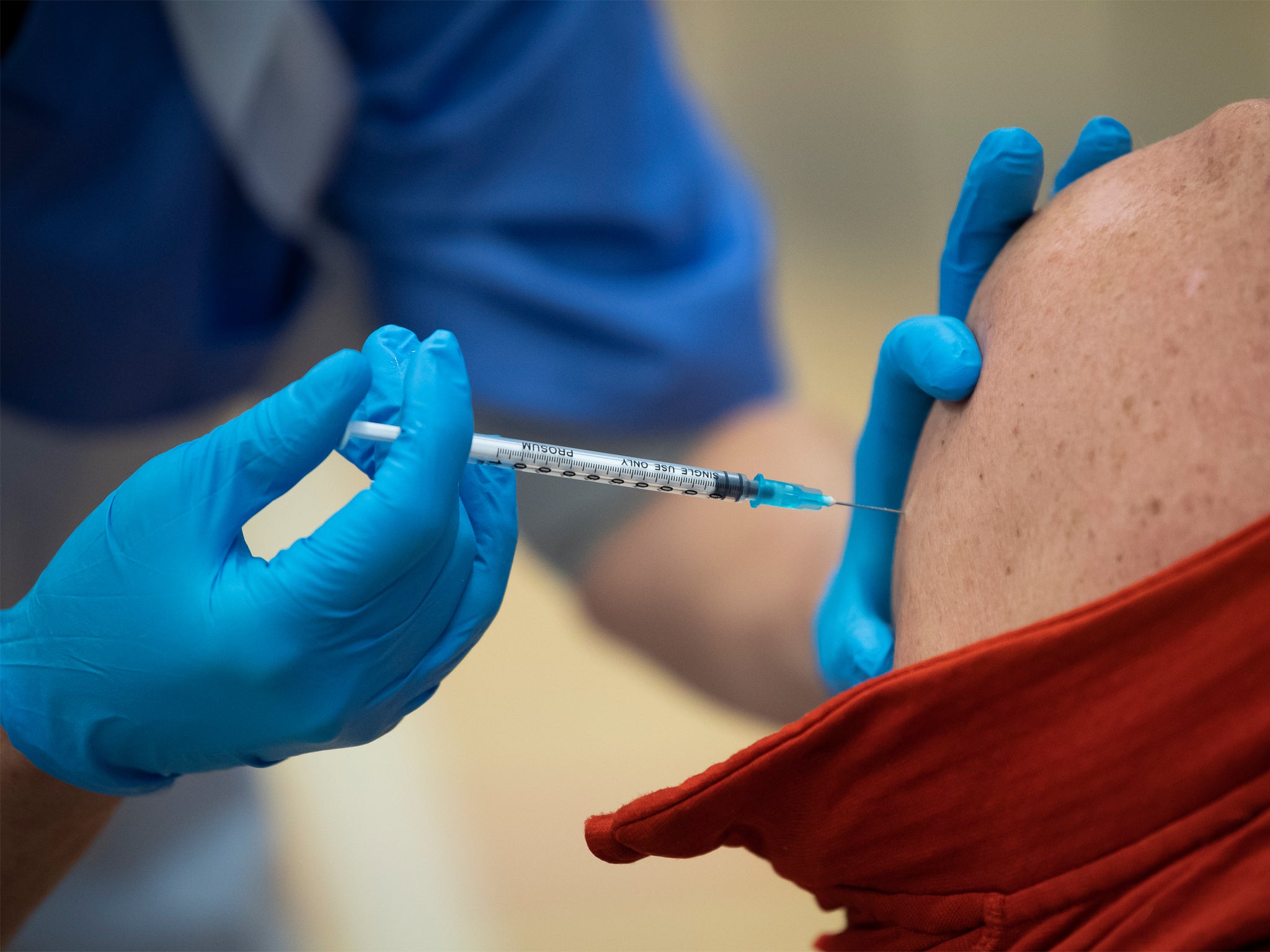Belief in Covid conspiracies linked to low vaccine uptake, new study suggests
Research suggests 15 per cent of the general public believe public authorities are covering up important information about the virus

Your support helps us to tell the story
From reproductive rights to climate change to Big Tech, The Independent is on the ground when the story is developing. Whether it's investigating the financials of Elon Musk's pro-Trump PAC or producing our latest documentary, 'The A Word', which shines a light on the American women fighting for reproductive rights, we know how important it is to parse out the facts from the messaging.
At such a critical moment in US history, we need reporters on the ground. Your donation allows us to keep sending journalists to speak to both sides of the story.
The Independent is trusted by Americans across the entire political spectrum. And unlike many other quality news outlets, we choose not to lock Americans out of our reporting and analysis with paywalls. We believe quality journalism should be available to everyone, paid for by those who can afford it.
Your support makes all the difference.Those who are less likely to take the coronavirus vaccine are associated with beliefs in conspiracy suspicions about the virus, a study suggests.
According to the new research, around 15 per cent of the general public believe public authorities are involved in a cover-up of important information surrounding covid-19.
The study by the University of Bristol and King’s College London found this rises to 42 per cent among those who say they are unlikely to, or definitely will not, get vaccinated against the virus.
The study surveyed 4,860 adults aged 18 to 75 with around half (51 per cent) of those who said they are unlikely to take the vaccine also believing that an impartial investigation would find the public have been lied to by authorities.
The research found 27 per cent of the population overall thought that the "real truth about coronavirus is being kept from the public.” This rose to 64 per cent among those who are vaccine hesitant.
Meanwhile, those that said they receive much of their information regarding the pandemic from online sources are more likely to believe conspiracy theories.
It was also suggested that those from ethnic minority backgrounds were particularly likely to believe conspiracy-related theories with 25 per cent believing the vaccine is being developed in order to make pharmaceutical companies. This compared to 13 per cent of white people holding similar views.
Concerns about coronavirus vaccines manifested for some in the belief that jabs cause autism in healthy children. Ethnic minorities were twice as likely (22 per cent) as white people (11 per cent) to report this notion.
Moreover, ethnic minorities (15 per cent) are half as likely as white people (31 per cent) to say they would like to be vaccinated immediately.
About the findings, Professor Bobby Duffy, director of the Policy Institute at King's College London, said addressing this mix of "underlying beliefs, misleading information and harmful behaviour" was a challenge for tackling coronavirus.
Raising concerns about the impact on public health, he said: “While they might seem outlandish, conspiracy suspicions and beliefs are far from harmless speculation – especially in the midst of a deadly pandemic.”
"Our findings show that although conspiracy thinking is limited to a minority of the population, something which is important to emphasise, levels of belief are particularly high among certain groups, such as the vaccine-hesitant.
"Addressing this mix of underlying beliefs, misleading information and harmful behaviour is a key public health challenge,” he added.





Join our commenting forum
Join thought-provoking conversations, follow other Independent readers and see their replies
Comments